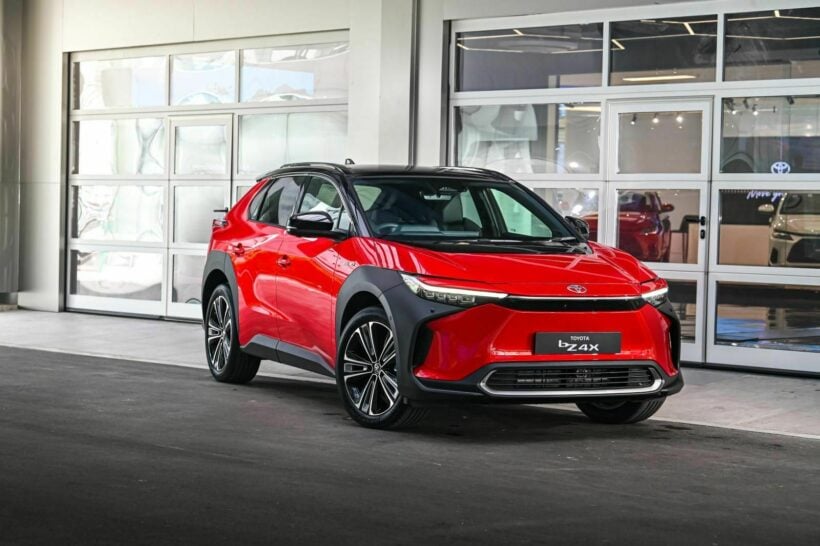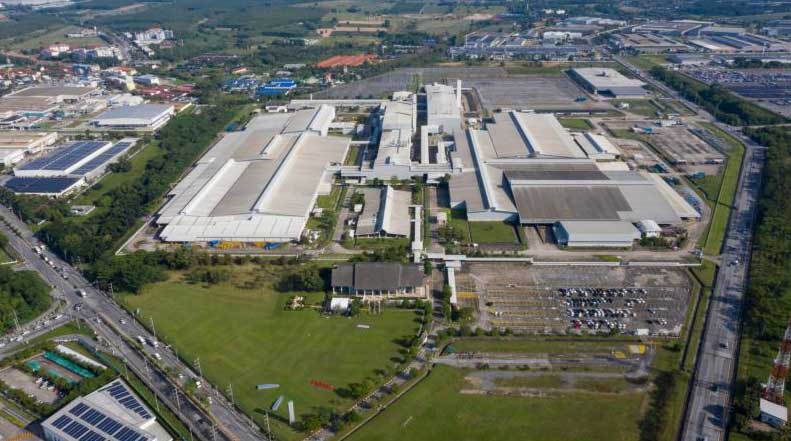Subsidised Toyota bZ4X finally on sale in Thailand

The long-awaited new electric Toyota bZ4X went on sale in Thailand Wednesday, taking advantage of new government subsidies.
In February, the Thai government introduced subsidies of up to 150,000 baht (US$4,000) per electric vehicle (EV). The new Toyota is the first Japanese car to qualify. The tax break for battery electric vehicles (BEVs) covers passenger cars with no more than 10 seats and a maximum recommended retail price of 2 million baht.
According to Nikkei, the bZ4X SUV is Toyota’s first foray into the EV market beyond its high-end Lexus brand.
The vehicle, which will be manufactured in Japan, will sell for 1.8 million baht (US$50,000) and comes in six colours. The maximum range on a single charge is approximately 400km, making the vehicle one of the longest-range EVs.
Toyota has been Thailand’s top car company for years, selling 240,000 vehicles in 2021. It hopes to stay on top of sales rankings for EVs with the bZ4X, but faces stiff competition from more affordable Chinese competitors.
Chinese automakers are exporting a record number of new-energy vehicles (NEVs) to Thailand — some 60,000 since January. Thailand is now the third export destination for Chinese EVs, behind Belgium and the UK.
Thailand’s status as the largest auto manufacturing hub in Southeast Asia is assured by a comprehensive supply chain feeding scores of factories, mainly owned by Japanese companies and producing internal combustion engine cars.

In September, China’s biggest maker of electric and hybrid cars, BYD, announced plans to build its first overseas electric passenger car plant in Rayong. Only a few days before, the 10,000th battery-powered car rolled off Great Wall Motor Co.’s production line in the same town, while Shanghai-based Hozon New Energy Automobile Co. opened its first Thai showroom in the capital’s glittering Central Rama 2 mall.
BYD Auto, the fourth-largest EV company in the world, is selling a small electric SUV in Thailand, the ATTO3, for 1.2 million baht.
Latest Thailand News
Follow The Thaiger on Google News:


























